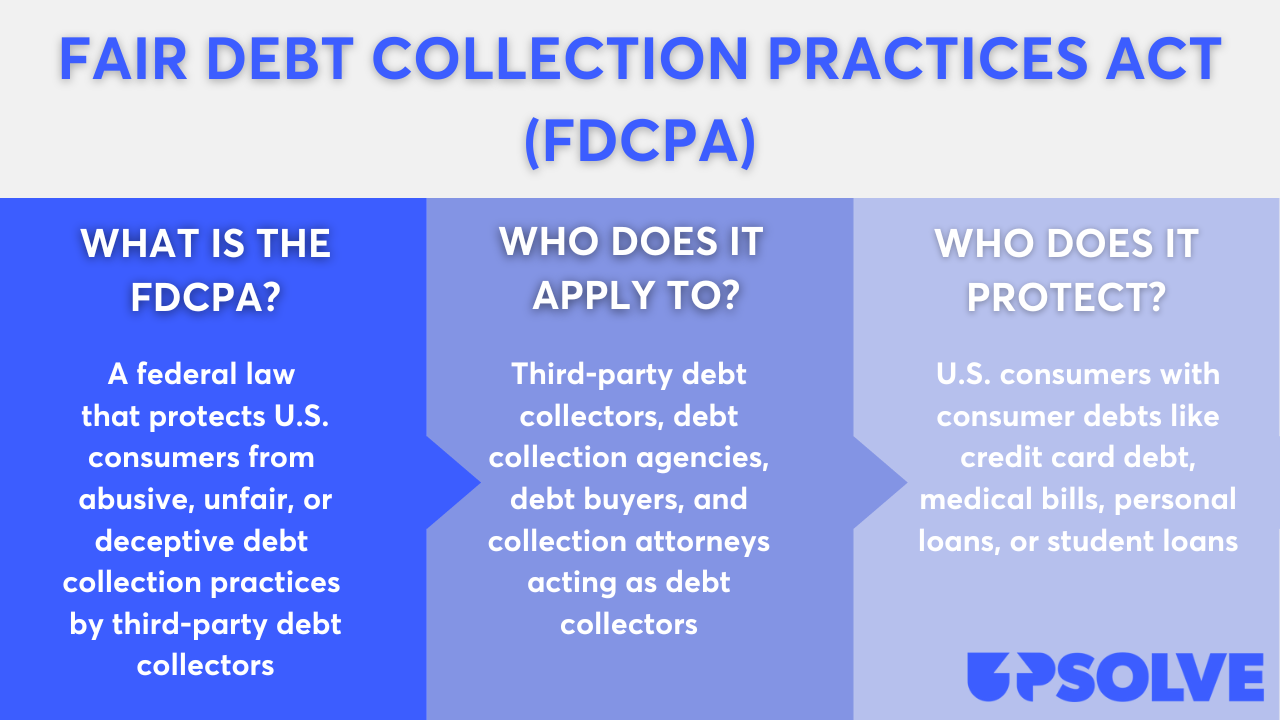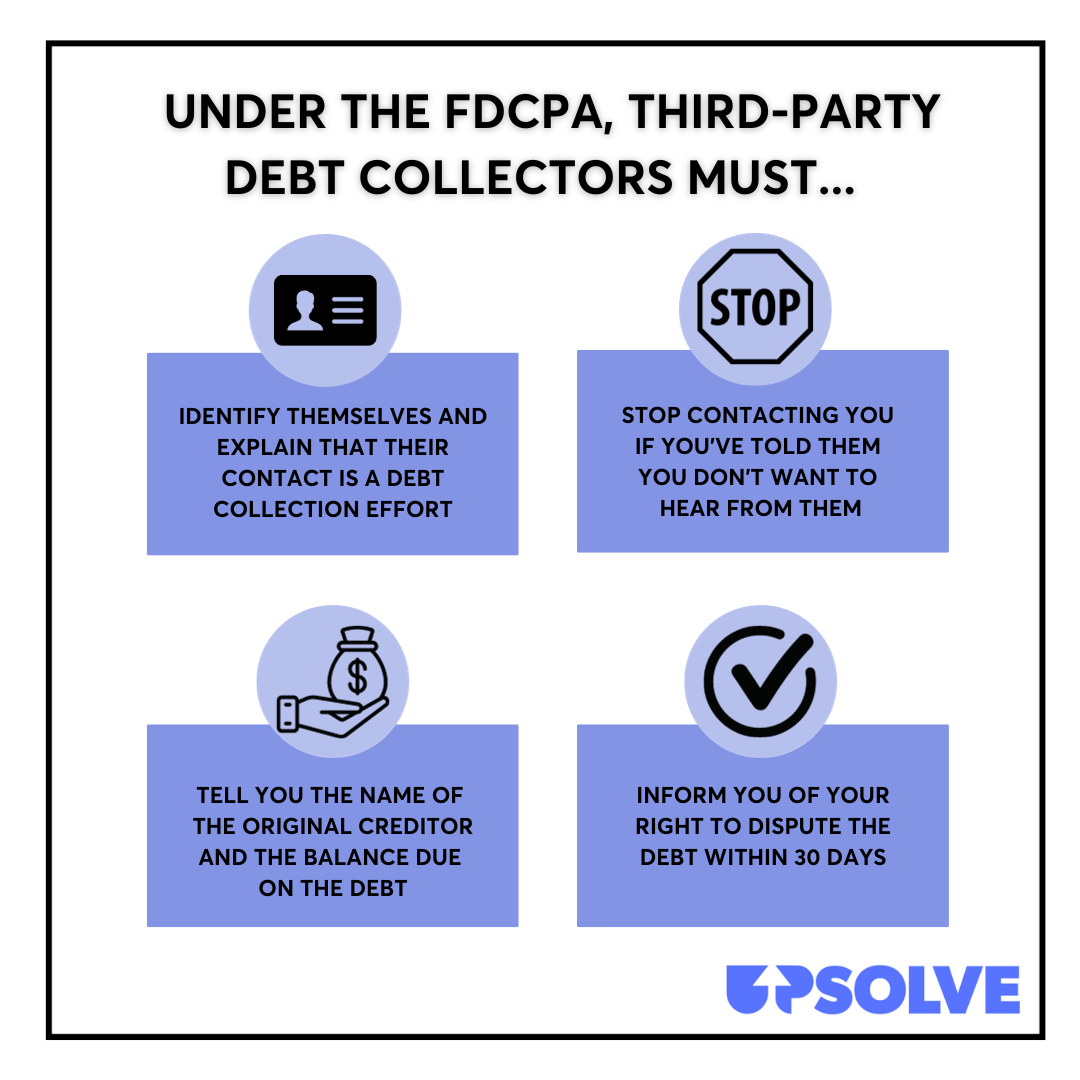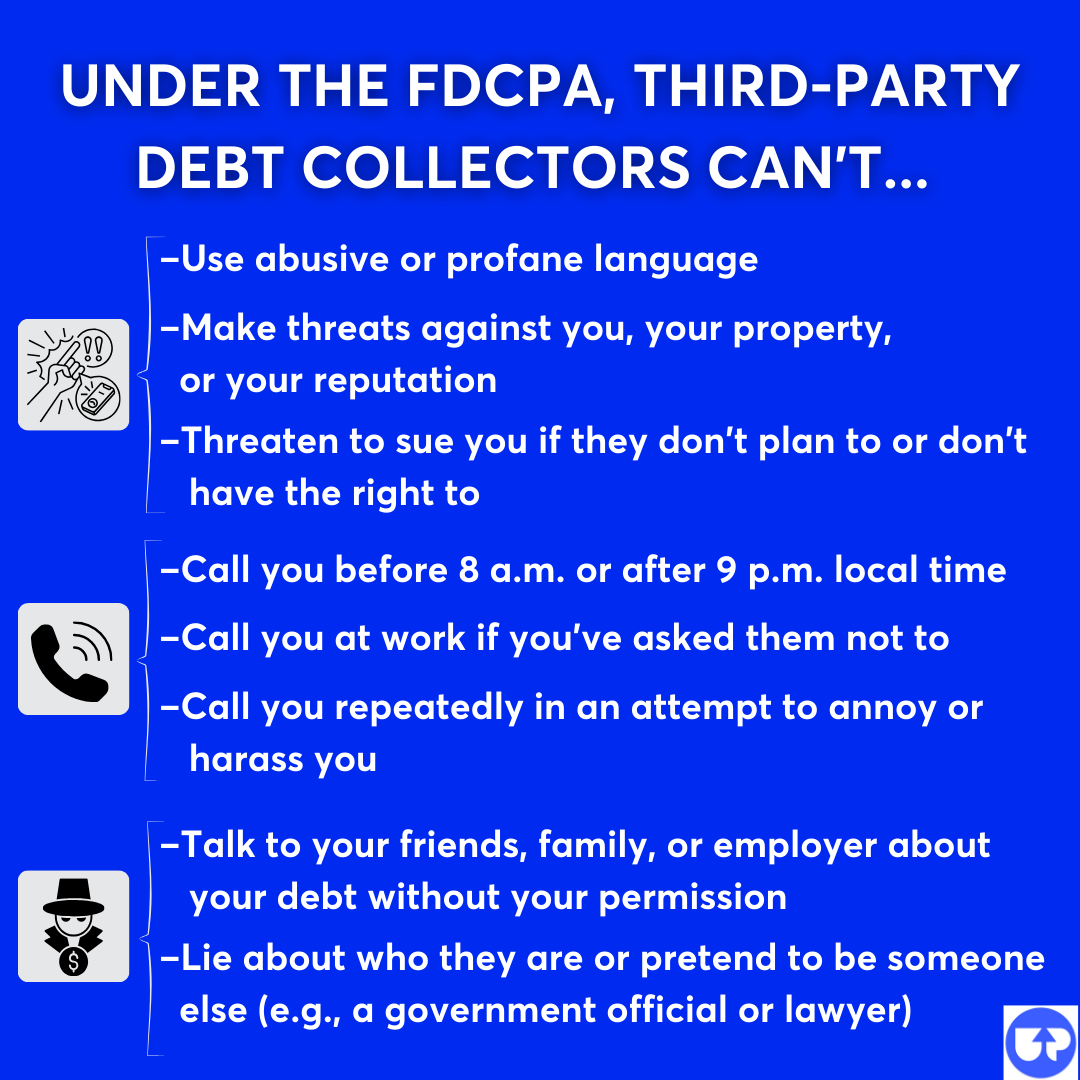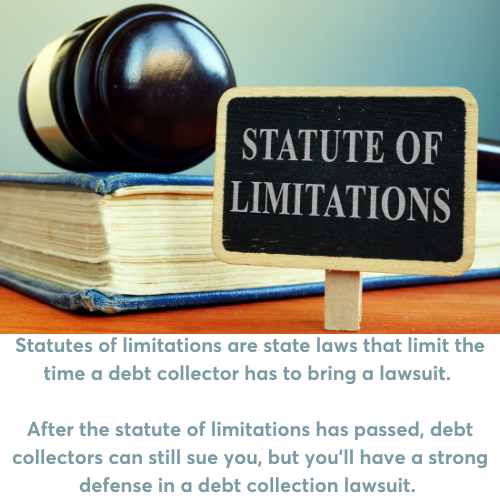Your Guide to New Jersey’s Debt Collection Laws
Upsolve is a nonprofit that helps you eliminate your debt with our free bankruptcy filing tool. Think TurboTax for bankruptcy. You could be debt-free in as little as 4 months. Featured in Forbes 4x and funded by institutions like Harvard University — so we’ll never ask you for a credit card. See if you qualify →
If you live in New Jersey, your greatest line of protection against debt collector deception and other bad behavior is the federal Fair Debt Collection Practices Act (FDCPA). This important federal law prohibits third-party debt collectors from harassing, deceiving, or otherwise abusing you in the debt collection process. Unlike many states, New Jersey hasn’t passed any state debt collection laws that provide further protections to its residents.
The statute of limitations is six years for most kinds of consumer debt in New Jersey.
Written by Upsolve Team.
Updated August 23, 2025
Table of Contents
What Are the Debt Collection Laws in New Jersey?
New Jersey doesn’t have a specific state law that regulates the debt collection process in the state. However, New Jersey residents are protected by the federal Fair Debt Collection Practices Act (FDCPA). This law applies to third-party debt collectors, not to original creditors, but it has vast protections.
Here’s an overview of the FDCPA:

The FDCPA requires debt collectors to do certain things when they’re trying to collect a debt from you, including the following:

The FDCPA also outlines several things debt collectors can’t do when trying to collect a debt from you, which includes:

What Can You Do if a Debt Collector Breaks the Law in New Jersey?
Even though New Jersey doesn’t have its own debt collection law, you can report debt collector harassment or other bad behavior. You may also be able to bring a lawsuit against debt collectors who violate the FDCPA.
File a Complaint
If you want to file a complaint, you can do so online with the New Jersey Division of Consumer Affairs or the Consumer Financial Protection Bureau (CFPB).
The Division of Consumer Affairs is part of the New Jersey Attorney General’s office. This is a state agency that helps enforce consumer protection laws and regulate business practices in the state.
The CFPB is a federal agency that helps enforce the FDCPA and protects consumers from unfair financial practices.
Sue the Debt Collector
Unfortunately, FDCPA violations are relatively common. If a debt collector has violated your rights or harassed or abused you, you can sue the debt collector for damages. Damages is a legal term that means compensation.
If you win the lawsuit against the debt collector, you may be awarded actual damages, which is compensation for financial loss or harm you’ve suffered. You can also get up to $1,000 in statutory damages for FDCPA violations. Statutory damages help compensate you for the debt collector breaking the law.
You can file a lawsuit on your own, but it will likely require you to do some research on how the process works in the New Jersey court system. If you are suing for $5,000 or less, you can file your suit in small claims court. This process is less formal and simpler than other types of civil cases. The New Jersey Courts website has helpful information on how to bring a small claims lawsuit. If you want to get legal advice, you can see if any local consumer rights attorneys offer free consultations.
Upsolve Member Experiences
4,716+ Members OnlineWhat Is the Statute of Limitations for Debt Collection in New Jersey?
Every state has its own statute of limitations law for debt. The purpose of this law is to prevent debt collectors from trying to collect on old debt.

The statute of limitations can vary by debt type, but in New Jersey, it’s consistent for most types of consumer debt except auto loans.
| Type of Debt | Statute of Limitations |
|---|---|
| Credit Card (Open Accounts) | 6 years |
| Medical Bills | 6 years |
| Mortgage | 6 years |
| Auto Loans | 4–6 years |
| Judgments | 20 years |
What Can Debt Collectors Do To Collect Debt in New Jersey?
The federal Fair Debt Collection Practices Act provides many important protections, but it doesn’t prohibit debt collectors from trying to collect a debt they think you owe. This process usually starts with typical collection activities like phone calls or other forms of contact. After a period of time, the debt collector may decide to take you to court if they haven’t been able to get ahold of you or come to a resolution.
The debt collector isn’t just trying to scare you. They’re likely trying to get a court order so they can access your money directly. The most common way to do this is with a wage garnishment order, which allows the debt collector to take money directly from your paycheck. Thankfully, New Jersey law limits how much of your wages can be garnished each paycheck.
If wage garnishment isn’t possible, the debt collector may try to get an order to take funds from your bank account or to put a lien on property if you own any.
If you’re being pursued for an auto loan debt, you may also be at risk of having your car repossessed. The lender or debt collector doesn’t have to get a court order to take your car if you’ve defaulted on your loan agreement.
If you get sued, you’ll be notified with a court summons and complaint. The most important thing to do is respond to the summons! If you don’t, you hand the debt collector an easy win. Here’s how to respond to a debt lawsuit in New Jersey.
Need Help With Debt Relief? Here Are Some Options
A recent study showed that the average New Jersey resident owes $9,468 in credit card debt. This is one of the highest state averages in the country. So if you’re struggling to keep up with your debt payments, you’re not alone. The frustrating thing about debt is that once you start to get behind, it’s easy for debt to snowball fast due to high interest rates and fees.
If you don’t have a good plan to tackle your debt, it might be time to make one. And you can get some free help to do so from a credit counselor. Credit counseling is a nonprofit service that helps individuals manage their debt, budget, and improve their overall financial situation. A credit counselor may suggest any of the following:
Debt management plan: A structured repayment plan to help you pay off your debts more efficiently
Debt consolidation: Combining multiple debts into a single loan or payment to streamline and potentially lower your monthly payments and/or interest rates
Bankruptcy: A legal process (and right!) that allows you to erase certain debts and get a financial fresh start
If you decide to file Chapter 7 bankruptcy to get a fresh start, Upsolve can help. See if you qualify to use our free filing tool. Upsolve has helped over 300,000 people erase over $700 million in debt… all for free.
